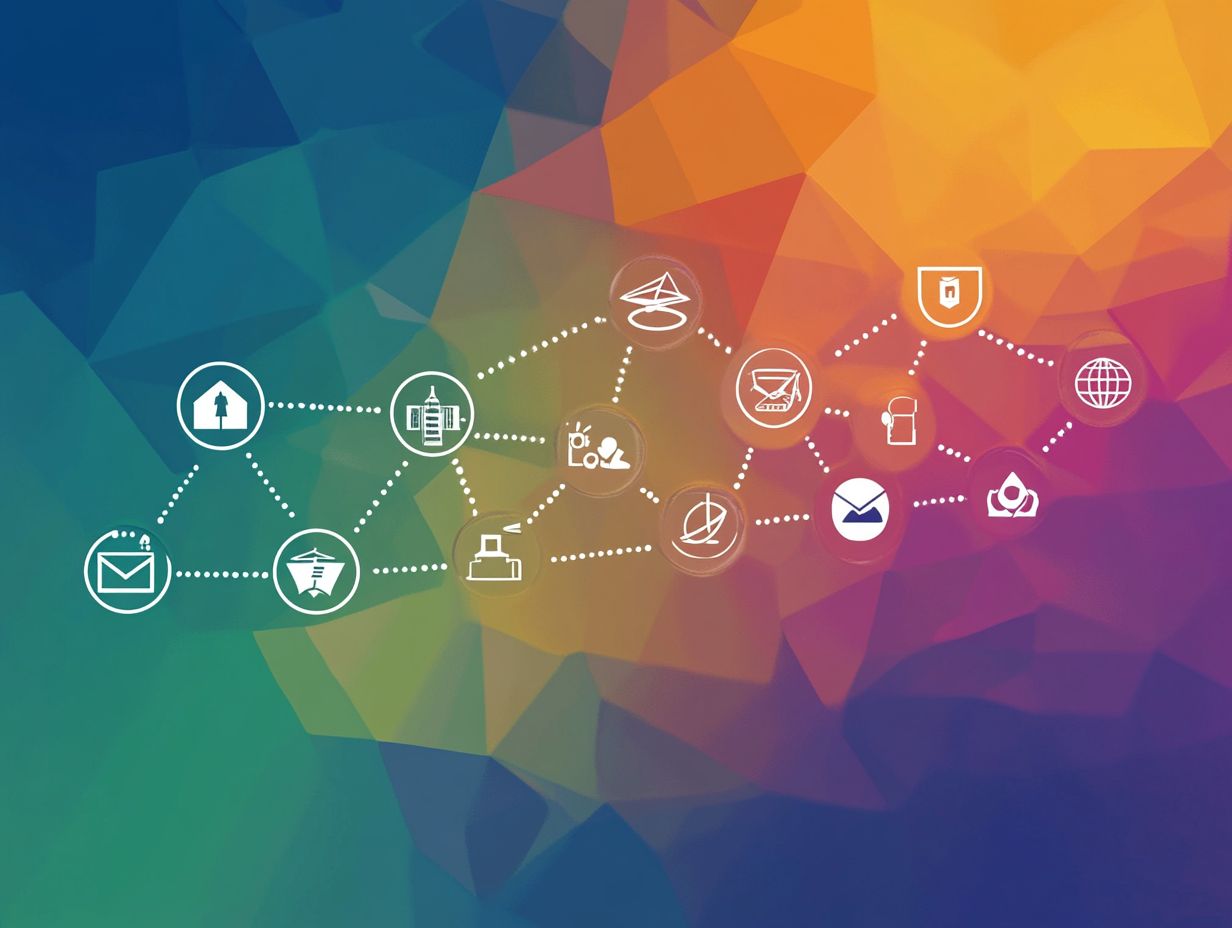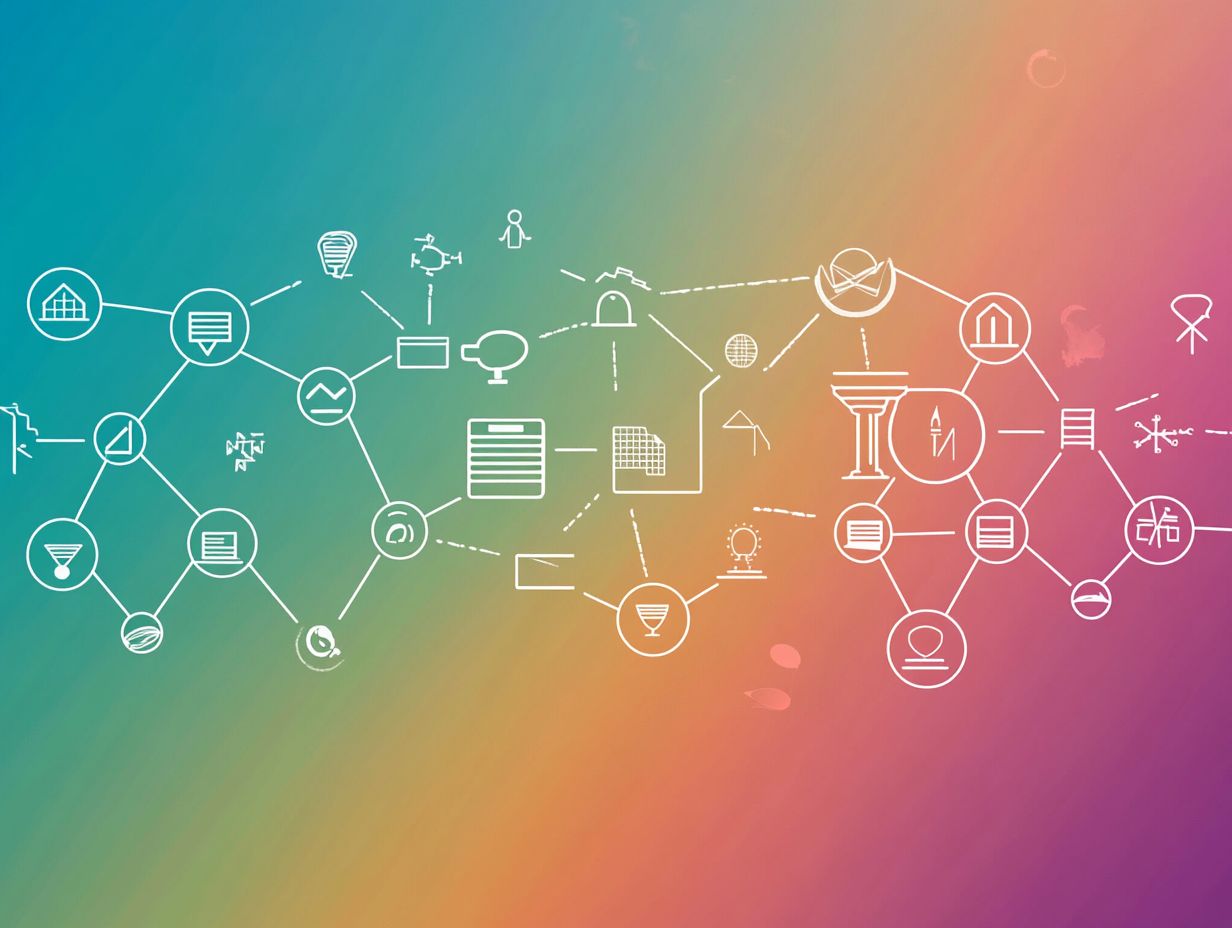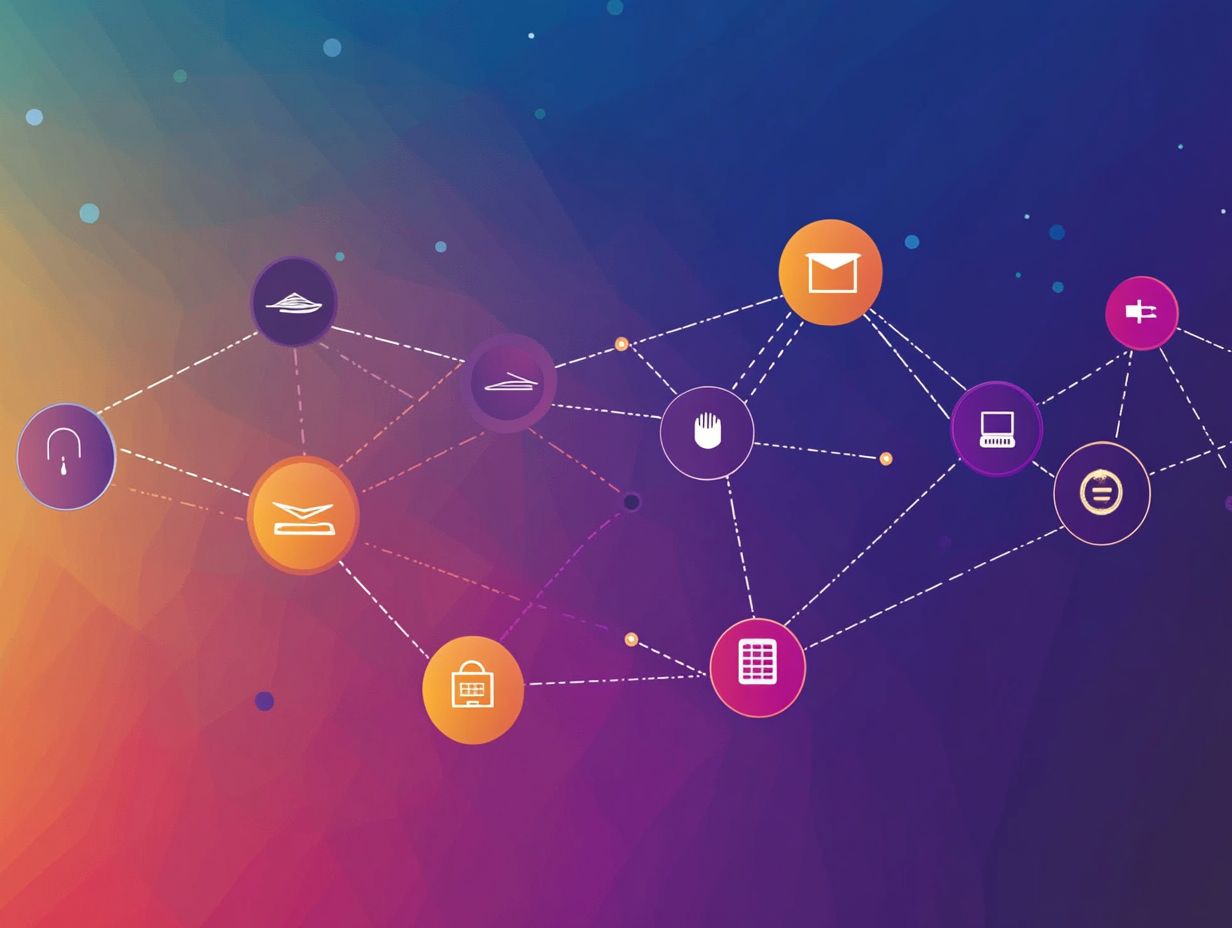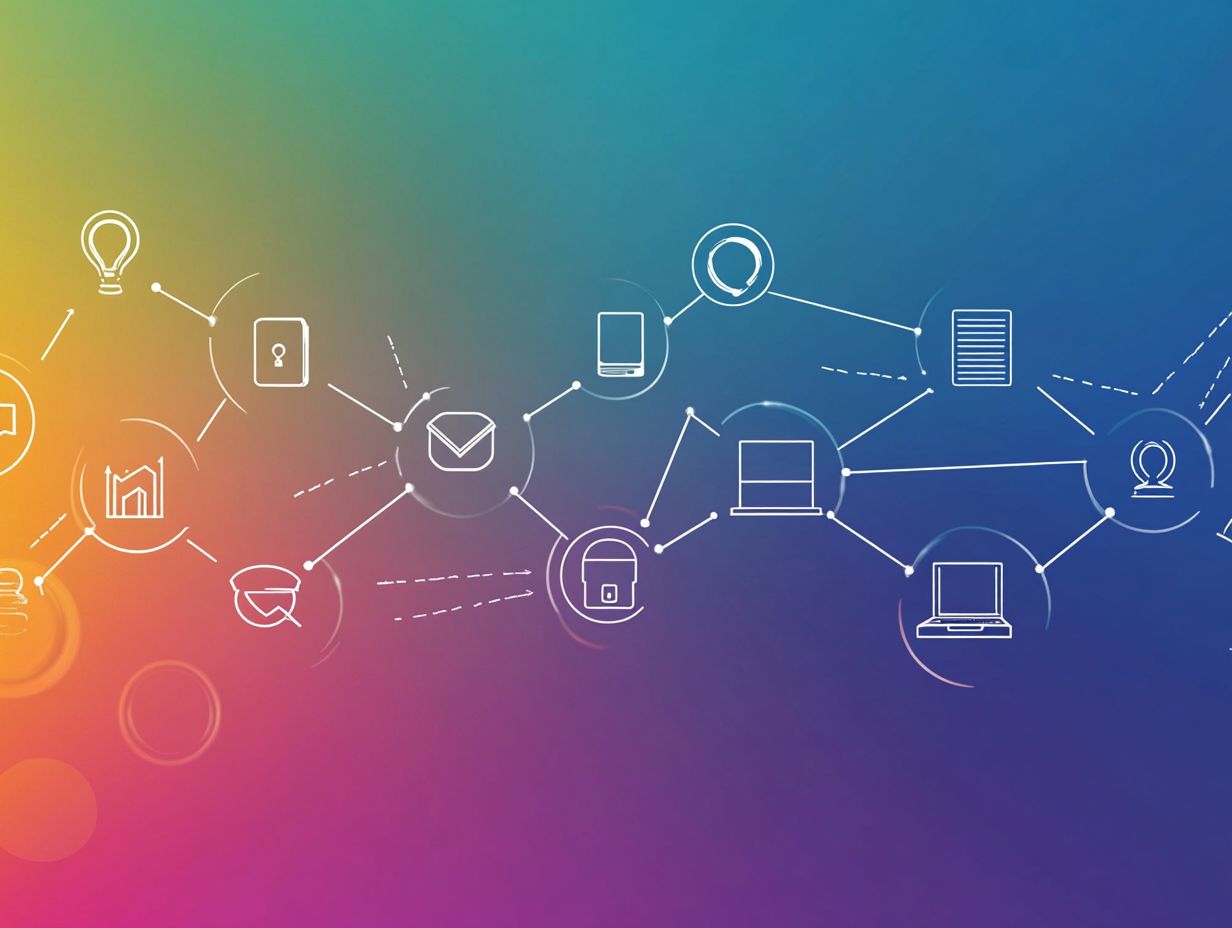The Evolution of Online Master’s Degree Accreditation
Online master’s degrees have revolutionized higher education by providing flexible learning opportunities for students worldwide.
As these programs gain popularity, understanding the importance of accreditation is essential.
Get ready to discover what accreditation truly means, its critical role in ensuring quality education, and how technology is transforming the accreditation process.
You’ll also learn about the evolution of online master’s degree accreditation, including past challenges, current standards, and future predictions.
Join us as we uncover the crucial role accreditation plays in your educational journey.
Contents
- Key Takeaways:
- Overview of Online Master’s Degrees
- The Importance of Accreditation
- The Evolution of Online Master’s Degree Accreditation
- The Role of Technology in Accreditation
- The Future of Online Master’s Degree Accreditation
- Frequently Asked Questions
- How has online master’s degree accreditation changed over the years?
- How has the accreditation process for online master’s degree programs changed?
- Why is online master’s degree accreditation important?
- Who grants accreditation to online master’s degree programs?
- How do I know if an online master’s degree program is accredited?
- Are all online master’s degree programs accredited?
Key Takeaways:

- Online master’s degrees have seen significant growth in recent years, appealing to many students due to the convenience and flexibility of online education.
- Accreditation is vital for ensuring the quality and credibility of online master’s degrees, involving thorough evaluations by independent agencies.
- The evolution of online master’s degree accreditation has faced challenges and changes, but technology has greatly improved and streamlined the process.
Overview of Online Master’s Degrees
Online master’s degrees represent a transformative moment in higher education, driven by technological advancements and the growing demand for flexible scheduling, especially due to the COVID-19 pandemic.
With more postsecondary institutions adopting distance learning, you now have access to a wide range of online graduate programs designed to meet diverse educational needs.
Renowned accredited universities, such as the Massachusetts Institute of Technology and the University of Phoenix, have adapted their offerings to include extensive virtual education options, enabling you to pursue your master’s degree from virtually anywhere.
The Importance of Accreditation
Accreditation is a process that checks if educational programs meet specific quality standards established by accreditation agencies. This significantly influences the degree’s value in the job market for graduates.
Without proper accreditation, you risk investing time and resources in programs that may lack recognition from employers or other educational institutions, ultimately undermining your future opportunities.
What is Accreditation?
Accreditation serves as a badge of honor for educational institutions, providing formal recognition that evaluates them against established standards to ensure quality assurance. This process acts as a benchmark for educational quality, helping to uphold high standards within the academic community.
You ll encounter two primary types of accreditation: regional and national.
Regional accreditation is typically reserved for nonprofit institutions that meet rigorous academic standards, often carrying a sense of prestige in higher education. In contrast, national accreditation generally applies to vocational or technical schools and is viewed as less comprehensive.
Accreditation agencies assess institutions based on criteria such as curriculum quality, faculty qualifications, student services, and institutional governance. Maintaining these standards is crucial because accredited institutions can offer federal financial aid, facilitate credit transfers, and uphold educational integrity all fostering trust within the academic landscape.
Why is Accreditation Important for Online Master’s Degrees?
Accreditation is vital for online master’s degrees, directly influencing how employers and academic institutions perceive the value of your degree. Understanding the role of accreditation in online learning ensures that this assurance of quality education is essential for recognition in your field.
Such recognition can greatly enhance your job prospects, as employers typically prefer candidates with degrees from accredited programs. The transferability of your credits is also closely tied to accreditation status; institutions are more likely to accept credits from accredited programs, ensuring a smoother transition to further education.
Consider well-accredited online master’s programs from universities like the University of Southern California and Purdue University. Make sure to verify accreditation before you enroll to protect your investment in your future and influence both your immediate job opportunities and long-term career advancement.
The Evolution of Online Master’s Degree Accreditation

The evolution of online master’s degree accreditation mirrors the dynamic landscape of online education. Initially, challenges like doubt from traditional schools and inconsistent standards posed significant hurdles, making it essential to grasp understanding accreditation for online degrees.
However, these challenges have gradually transformed into more structured accreditation processes that ensure quality and credibility in higher education. As online programs have surged, accreditation agencies have refined their criteria to meet the unique demands and challenges of distance learning, offering clear guidelines and expectations for educational institutions.
Early Challenges and Changes
In the early days of online education, many challenges arose regarding accreditation. Skepticism from traditional institutions and concerns about the quality of education offered through distance learning platforms were prevalent.
As a result, many online programs struggled to gain the recognition and legitimacy they deserved. This lack of recognition led to calls for more rigorous standards. The environment of doubt likely deterred potential students from enrolling, as the value of investing in an unregulated space seemed uncertain.
The absence of established accreditation frameworks heightened these concerns, creating a perception that online degrees were inferior to those from brick-and-mortar institutions.
Recognizing the urgency to address these issues, educators and institutions came together to redefine accreditation processes. Many organizations began collaborating to enhance standards, ensuring that online programs not only met but exceeded traditional benchmarks.
This urgent teamwork built trust fast, giving students confidence in their online education.
Current Standards and Processes
The accreditation process for online master’s degrees today is defined by established standards that prioritize quality assurance, accountability, and ongoing improvement in educational delivery, highlighting the importance of choosing accredited online master’s programs.
Accreditation agencies utilize a rigorous evaluation framework that scrutinizes various aspects of online programs, such as curriculum quality, faculty qualifications, and student support services. These processes differ significantly from traditional accreditation, expertly adapting to the unique challenges and opportunities that digital platforms present.
Technology evolves quickly, and accrediting bodies recognize the necessity for flexibility in their standards, ensuring that online programs remain both relevant and effective. This shift keeps pace with new teaching methods, exciting options for today s learners!
By focusing on measurable outcomes and gathering stakeholder feedback, accreditation agencies aim to cultivate continuous growth and innovation within the online education sector.
The Role of Technology in Accreditation
Technology serves a crucial role in the accreditation of online master’s degrees, shaping not only how education is delivered but also enhancing the accreditation processes themselves.
This allows institutions like yours to demonstrate compliance with established standards with impressive efficiency. Learning Management Systems (LMS), which help track student progress, and various technological tools enable institutions to monitor student performance, evaluate program quality, and furnish evidence of adherence to accreditation requirements seamlessly.
Impact of Technology on Accreditation Processes
The impact of technology on accreditation processes is transformative, reshaping how you show and report data regarding your online master’s degree programs. This shift fosters transparency and enhances accountability across the educational landscape.
With advanced data collection methods at your disposal, you can demonstrate meeting accreditation standards while elevating the quality of your educational offerings.
Consider the power of tools that analyze student performance. These tools allow you to evaluate performance metrics in real-time, pinpoint areas that need improvement, and showcase results to accrediting bodies.
Sophisticated reporting software makes compiling the required documentation a breeze, streamlining the assessment process.
These innovations do more than just speed up responses to accreditation requests; they also enhance the credibility of online education. By showcasing a systematic approach to continuous improvement, you reassure students and stakeholders about the integrity and value of their chosen programs.
Benefits and Limitations of Technology in Accreditation

While technology significantly enhances accreditation processes for online education bringing improved efficiency, accessibility, and data-driven decision-making it also has limitations. Beware of relying too much on technology, as concerns about data security and privacy exist.
The integration of digital platforms has transformed how institutions document their compliance with accreditation standards. Real-time data access enables easier collaboration among educational stakeholders, encouraging more responsibility in reporting and evaluations.
It’s essential to navigate the challenges that arise. Institutions may prioritize technological solutions over fundamental educational principles, leading to a depersonalized approach to accreditation.
Leaning too heavily on automated systems raises questions about vulnerability to cyber threats, potentially compromising sensitive information and undermining trust in the accreditation process.
The Future of Online Master’s Degree Accreditation
The future is evolving rapidly, driven by shifts in educational demands and technological advancements. These changes present both opportunities and challenges for institutions and accreditation agencies.
As the emphasis on accessibility and quality assurance grows, accreditation processes must adapt to meet the dynamic landscape of online education and cater to diverse student populations.
Predicted Changes and Challenges
Anticipated changes in the accreditation landscape for online master’s degrees suggest a heightened emphasis on competency-based education and more flexible accreditation standards. Understanding why accreditation matters for online degrees will be crucial as challenges arise in maintaining quality assurance as technology progresses.
As institutions adapt to these new dynamics, you may navigate uncharted waters, especially in aligning curricula with evolving competency metrics that prioritize performance over traditional credit hours. This transition requires rethinking workforce training and reevaluating existing assessment methods.
The expected shift towards more adaptive accreditation frameworks raises valid concerns about the rigor with which these programs will be evaluated. Inconsistencies in quality may occur, and as an educational leader, you must find a balance between flexibility and accountability, ensuring educational standards are upheld while innovating to meet changing student needs.
Frequently Asked Questions
How has online master’s degree accreditation changed over the years?
The evolution of online master’s degree accreditation refers to the changes and advancements in the process of accrediting these programs over the years, highlighting the future of accredited online education.
How has the accreditation process for online master’s degree programs changed?

The accreditation process has become stricter and more detailed. It now considers course design, faculty qualifications, student support, and technology.
Why is online master’s degree accreditation important?
Online master’s degree accreditation ensures a program meets quality standards. This approval makes it easier to transfer credits and assures employers recognize your degree, especially as the future of online master’s degrees in 2025 evolves.
Who grants accreditation to online master’s degree programs?
Independent organizations, like the Distance Education Accrediting Commission (DEAC) and the Higher Learning Commission (HLC), grant accreditation.
How do I know if an online master’s degree program is accredited?
Check the accreditation status on the accrediting organization’s website or the program’s site. You can also call the school to inquire about their accreditation.
Are all online master’s degree programs accredited?
No, not every online master’s program is accredited. Research is essential to ensure your program is officially approved, which guarantees quality.






